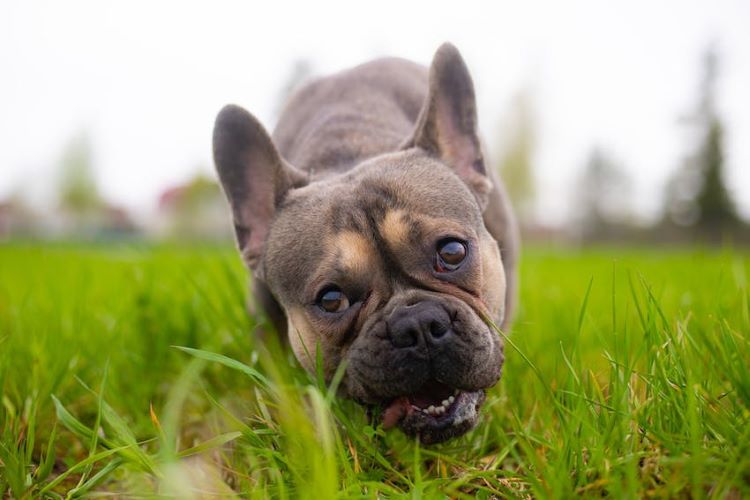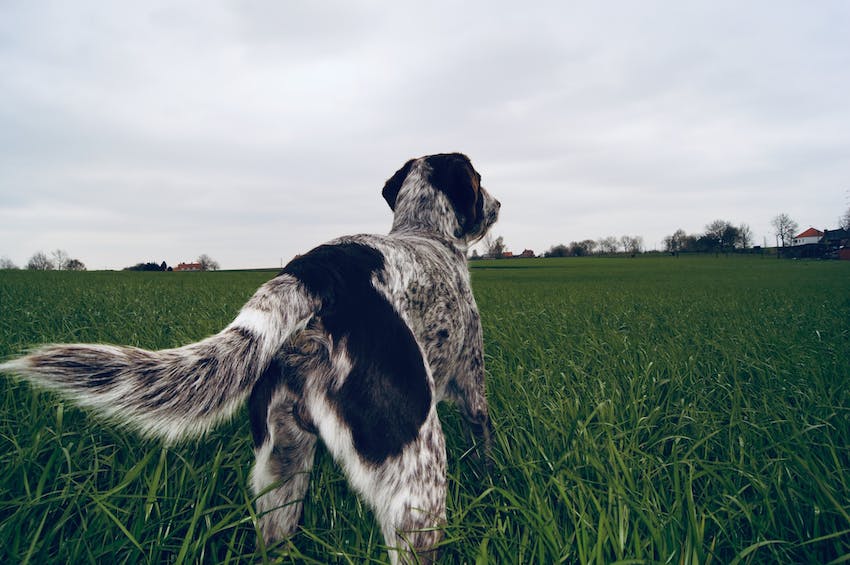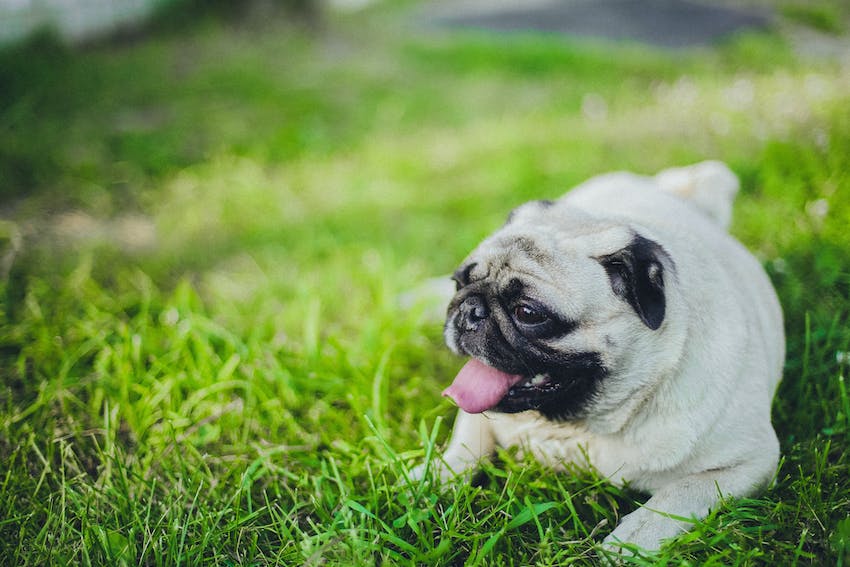Ready to help treat your pet to a healthy life?
Why Do Dogs Eat Grass? Common Reasons & What to do About it
By : Brianna Gunter | Updated Jul 8, 2025

Your dog loves to run around outside, but why is he stopping to chew up the lawn? Common knowledge says that dogs eat grass when they’re feeling sick and want to throw up, but evidence suggests otherwise. In fact, research has found that, while grass is the most-consumed plant for dogs, they don't tend to get sick after eating it. One study even discovered that only 9% of canines who ate grass appeared ill beforehand, while only 22% vomited afterward.
What gives, dogs?
The truth is that there are a variety of reasons why your pup may be eating grass, and it is an often misunderstood dog behavior. If you’re noticing signs of illness or suspect that your dog has recently ingested lawn chemicals, seek veterinary attention immediately. In the meantime, there are some things you can do about your pal’s behavior — starting with finding out if there’s an underlying cause.
Understanding veterinary pica
While many pet owners wonder why dogs eat grass, they may not be aware that this behavior falls under a specific technical term: pica. Also referred to as “veterinary pica” when pets are involved, this is a disorder characterized by eating objects that aren’t considered food (at least not for the person or animal engaging in the behavior). Because grass is devoid of nutritional value for canines, a dog who regularly eats it is considered to have pica.
On that note, be aware that this unusual eating habit is characterized by both chewing and consumption of non-food objects. If your buddy is just ripping up the lawn and spitting it out, he may just be bored and in need of better toys.
6 causes of canine pica (reasons why dogs eat grass)
Pica may stem from psychological and/or physiological origins that can range from mild to serious. According to a UC Davis School of Veterinary Medicine report, potential underlying causes of pica in pets include (but are not limited to) the following:
1. Anxiety and stress
Chewing on grass or engaging in similar behaviors could the result of a dog trying to self-soothe.
2. Boredom or lack of enrichment
Dogs who lack activity or stimulation in their everyday lives may munch on grass to pass the time.
3. Compulsive disorder
Similar to humans, dogs can suffer from compulsive behaviors that aren't done for any logical reason.
4. Puppy teething
Chewing on things like grass could be soothing for puppies who are getting new teeth.
5. Nutritional deficiencies
Dogs may attempt to eat grass and soil when lacking certain minerals in their diet.
6. Digestion needs
Some theorize that certain “non-foods” like grass provide roughage and fiber that can help your pet digest real food more easily.
Age may also be a factor. A study in the Journal of Veterinary Medical Science found that pica behavior was lowest in dogs of geriatric age compared to adult dogs and puppies. It was also significantly lower in adult dogs than in puppies. In other words, if you’re worried about a young dog regularly eating grass, it’s entirely possible that the practice will decrease as they grow up.

Dangers of grass ingestion
Regardless of why dogs eat grass, it’s not a healthy snack of choice. To start, dogs may not be consuming just grass. Everything from dirt and rocks to animal feces may be consumed during your pal’s grazing patterns, and many lawns contain fertilizers and other chemicals. All of these things can have detrimental effects on your pet’s health, and some cases may even lead to death.
Another cause for concern comes from the grass itself. Foxtails, or grass awns, are small, sharp parts of certain types of grasses that have small, arrow-like barbs. These barbs stick to your pet all too easily, and it doesn’t take much for them to be ingested or inhaled. The barbs can puncture soft tissues and cause serious harm.
According to the Pet Poison Helpline, grass awns have also been found to puncture the inside of dog ears.
Trupanion claims data
The dangers of grass ingestion may be more common than many pet owners realize. Trupanion data shows that over 1,300 foxtail (grass seed) foreign body-related claims were paid out in 2024, with an average $211 paid out per claim. But while the average claim amount may be on the lower end, that can swiftly change with more severe cases. If surgery is required for removal, the cost can reach $1000 to $3000 or more. In fact, the highest amount paid for a grass seed claim in 2024 was a whopping $8,375 for a single pet!
When to see a veterinarian
While some surveys have shown that almost all dogs eat grass at some point in time, those that make a habit of it should be evaluated by a veterinarian.
Seek medical attention right away if your dog is displaying signs of toxic ingestion like vomiting, diarrhea, fainting, delirious behavior, extreme fatigue, or increased urination. A fast heartbeat, hyper breathing, repeated coughing or gagging, or any signs of physical discomfort are also causes for concern.
7 Ways to stop dogs eating grass
Even if you’re not concerned about your lawn’s appearance, putting a halt to your pal’s grass-eating behavior is important for his health. Your buddy still needs plenty of time outdoors though, so you’ll need to take steps to curb his behavior.
- Address any underlying medical (including reducing stress if the cause is psychological).
- Play with your dog outdoors to keep him occupied.
- Make sure your pal gets plenty of daily exercise.
- Get your dog a new enrichment toy (or two!) to engage her mind.
- Remove your dog from the area when grass eating starts / use dog training commands.
- Feed your dog a nutritionally balanced, veterinarian-approved diet.
- Get ahead of surprise veterinary costs with a good dog insurance plan.
Always consult with your veterinarian beforehand about the best way to stop your dog from eating grass—the right course of action will depend on the cause.
What if my dog is still eating grass?

Still frustrated with a four-legged friend snacking on the lawn? You’re not alone. The question “why do dogs eat grass?” may be a simple one, but for many pet owners, finding the answer is surprisingly complex. Talk with your veterinarian about your concerns, and keep a close eye on your pal to make sure he’s not consuming dangerous chemicals or feces. If your dog is still a puppy it may just be a matter of waiting for him to grow up and develop different habits.
Remember: it’s not uncommon for canines to chew the greenery now and then, but it is important for all pet owners to be aware of the risks and recognize signs of trouble.
